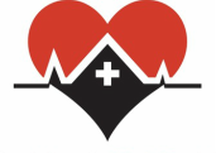WELLNESS & CONNECTION TO MIND & BODYEmotional stress can create havoc in our lives while creating a shift in our physiology to that of a “fight-or-flight” mentality. This shift releases adrenaline and cortisol, increasing heart rate and respiration. While this increased alertness might be short lived, for those who perceive their life events as a constant negative stressor, remaining in this "stress" can actually cause harm and illness over time.
Emotional stress sometimes causes lapses in memory, ongoing anxiety, and fatigue. It may also cause a person to avoid everyday activities that he or she previously enjoyed, such as socializing with family members and friends and being productive at work. Emotional stress may even cause mood swings, as well as various long-term health problems. Obesity, heart disease, high blood pressure, insomnia, mental disorders and addictive behaviors are just a few things that occur as the result of long-term stress. However, it is important to remember that not every individual has the same definition of "stress" so the triggers may not be easily recognized. Stress management strategies often help people cope with emotional stress, and these strategies include: Maintaining a Healthy Diet: Sugary snacks, dairy products and other foods and beverages sometimes provide an emotional boost, but this boost is only temporary. Instead, eat foods loaded with protein, vitamins and fiber, as these foods have been shown to help people stay happy and healthy. You should also eat regular meals and snacks throughout the day to maintain a continuous fuel source to stabilize your mood. Get Lots of Sleep: The National Sleep Foundation recommends adults between the ages of 26 to 74 get at last 7 to 9 hours of sleep per night. It is also important to sleep in an environment that is free of distraction and particularly electronics such as cell phone, laptop computer, or even the TV. Take a Break from Your Routine: If you begin to experience signs of emotional stress; take a walk, meditate, exercise, or just engage in something that will allow you to concentrate on other things. This allows you to experience a break from your emotional stress and then return to normal routines feeling a little bit more relaxed and invigorated. Lastly, it is also crucial to be prepared for events that may be unforeseen including medical emergencies. This preparedness and increased knowledge will give you or that family member that boost of confidence that they know what to do in that specific situation. Whether it be experiencing a BLS Provider Class, the Wilderness First Aid Course, or the Advanced Cardiovascular Life Support (ACLS) Class, these courses can help prepare the student both personally and professionally for the inevitable stressful event of life while allowing you to reduce the effects of long-term stress.
Comments
|
AuthorDr. Tracy A. Jones is the CEO of Help-A-Heart CPR, LLC and an American Heart Association, ASHI, and American Red Cross Master Program Trainer, Instructor, & AHA Faculty Member located in San Antonio, Texas. Archives
July 2024
Categories |
Help-A-Heart CPR, LLC | 1747 Citadell Plaza Suite 101 | San Antonio, Texas 78209 | (210) 380-5344 | [email protected]
Copyright © Help-A-Heart CPR, LLC 2024
100% Certification Acceptance
We promise your employer, school, or agency will accept the certification card we issue to you. If there is a question of acceptance or validity, simply send us an email at [email protected] with full details. We will reach out to the individual/entity and provide accreditation information. If still there’s a question, we will provide you with a full refund of your class fee. It’s that simple.
We promise your employer, school, or agency will accept the certification card we issue to you. If there is a question of acceptance or validity, simply send us an email at [email protected] with full details. We will reach out to the individual/entity and provide accreditation information. If still there’s a question, we will provide you with a full refund of your class fee. It’s that simple.
|
Communities Served
ALABAMA: Birmingham
ARKANSAS: Fayetteville, Hot Springs, Jonesboro, Little Rock NEW MEXICO: Albuquerque TENNESSEE: Knoxville TEXAS: Amarillo, Arlington, Austin, Bandera, Bastrop, Boerne, Brownsville, Comfort, Converse, Corpus Christi, Dallas/Ft. Worth, Del Rio, Dripping Springs, El Paso, Floresville, Fredericksburg, Georgetown, Harlingen, Houston, Junction, Katy, Kerrville, Kingsville, Kingwood, Laredo, Lubbock, Lufkin, McAllen, Midland, New Braunfels, Odessa, Pleasanton, Round Rock, San Angelo, San Marcos, Schertz, Seguin, Taylor, Temple, Texarkana, Tyler, Universal City, Victoria, Waco, The Woodlands |
Why Choose Help-A-Heart CPR?
1. Flexible Scheduling
2. On and Off Location Training Available 3. Casual, Fun Atmosphere 4. Best Price Guarantee 5. All Instructors are AHA and/or ARC certified 6. 5 Star Google Reviews 7. Blended Learning (Online & Skills Check) Available 8. Meets OSHA & College CPR Requirements 9. Get Certified Within 3-4 Hours 10.Certification Is Good For Two Years 11. Official AHA/ARC/ASHI Training Site 12. High Quality Safety Training! |








